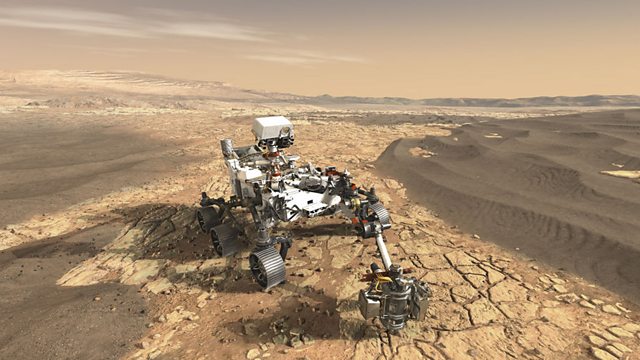NASA rover heads for Mars ancient lake
NASA’s new quest for life on Mars; 100 million year old microbes woken up; ocean map pioneer Marie Tharp; the origins of Covid-19
NASA launches its new robotic mission to Mars. The rover, Perseverance, will land in a 50 kilometre wide crater which looks like it was filled by a lake about 4 billion years ago – the time when life on Earth was getting started. Mission scientist Melissa Rice explains why this is one of the most promising places on Mars to continue the search for past life on the red planet.
Japanese and US scientists have revived microbes that have been buried at the bottom of the Pacific Ocean for 100 million years. Sampled from compacted mud 70 metres below the seafloor and beneath 6 kilometre of water, Yuki Morono and Steve D’Hondt admit they struggle to understand how the bacteria have survived for so long.
Science in Action celebrates the little unknown oceanographer Marie Tharp who in the late 1950s discovered the mid-Atlantic ridge which helped to launch the plate tectonics revolution in earth sciences. It would be Tharp’s 100th birthday this week.
New research this week suggests that coronaviruses capable of infecting humans have been in bats for 40 to 70 years, and that there may be numerous and as yet undetected viruses like the Covid-19 virus in bat populations with the potential to cause future pandemics. Their message is that we should be sampling and testing wild bat colonies much more extensively than currently. Their findings provide further evidence against the unfounded claim that the Covid-19 virus originated from the Wuhan Institute of Virology in China. Roland Pease talks to Dr Maciej Boni at Pennsylvania State University.
(Image: NASA's Perseverance Mars rover. Credit: Illustration provided by Jet Propulsion Laboratory in Pasadena, California. NASA/JPL-Caltech/Handout via REUTERS)
Producer: Andrew Luck-Baker
Last on
Broadcasts
- Thu 30 Jul 2020 19:32GMT91�ȱ� World Service except East and Southern Africa & West and Central Africa
- Fri 31 Jul 2020 03:32GMT91�ȱ� World Service
- Fri 31 Jul 2020 08:32GMT91�ȱ� World Service
- Fri 31 Jul 2020 12:32GMT91�ȱ� World Service except East and Southern Africa & West and Central Africa
- Fri 31 Jul 2020 17:32GMT91�ȱ� World Service East and Southern Africa & West and Central Africa only
Podcast
-
![]()
Science In Action
The 91�ȱ� brings you all the week's science news.


